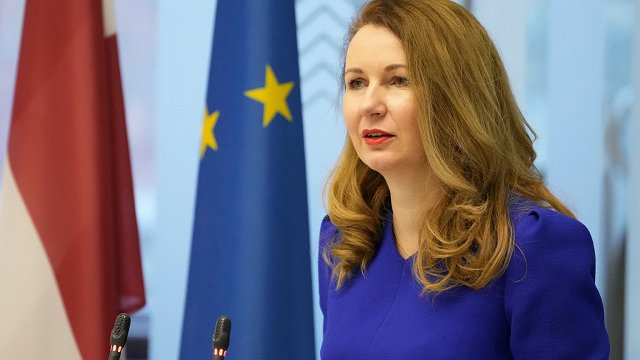The news weekly compiled information on all of the gas CHP plants, as well as renewable resource (biogas, biomass, HPP, wind and wood chip) power plant owners and officials whose donations are listed in the database published by Corruption Prevention and Combating Bureau (KNAB).
Ir concluded that the 1.3 million euros donated by these businessmen is a considerable sum, as the total sum of donations the government parties received during this time amounts to 35.3 million euros.
A large portion of these 1,3 million euros was donated to political parties associated with Andris Šķēle and Ainārs Šlesers. An total of 415 000 euros were donated to the People’s Party, For a Good Latvia, LPP/LC, Honor to Serve Riga, Latvia’s First Party, United for Latvia, and Latvian Way.
The Greens and Farmers Union (ZZS) together with its component members – Latvian Green Party and Latvian Farmers Union – received an overall of 303 000 euros from businessmen associated with the MPC system.
270 000 euros were donated to New Unity and its predecessors Unity, New Era, Civic Union, and Society for Political Change.
The National Alliance and its predecessor TB/LNNK were donated 62 000 euros, while the Development/For alliance and its predecessors were donated 73 000 euros.
For many years, Harmony has also received donations, even though in recent years it has begun positioning itself as a critic of the MPC scheme, Ir newspaper wrote. Harmony and its predecessor Harmony Center received 81 000 euros from businesses associated with the MPC system. Slightly less – 70 000 euros – was donated to the
Latvian Social Democratic Workers’ Party.
Among the most generous benefactors are bankers and businessmen associated with politicians, Ir concluded. Prior to the 2010 elections, businessman Donāts Vaitaitis donated 102 000 euros to various different parties: the For a Good Latvia Party, the Union of Greens and Farmers, the Civic Union and New Era. A couple of years later he was among the board members of NBT5 Energy, which develops wind turbines.
The second most generous benefactor was businessman and forest owner Uldis Mierkalns, who indirectly owns “Saldus enerģija”, which received a permit to build a biomass CHP plant in 2011. He donated 98 000 euros to political parties. The For Latvia's Development party received the lion's share of this sum in 2013. Before that, in 2008, Mierkalns also provided financial support to New Era.
Among the most generous benefactors are the owners of ABLV bank, Ernests Bernis and Oļegs Fiļs. Together, they have donated 174 000 euros to political parties. Other non-resident-focused banks can be seen behind the subsidized energy producers – either among their owners or creditors, Ir pointed out.
The businessman Andrejs Dozorcevs is also found at the top of the benefactors. The companies owned by Dozorcevs – “Biosil” "B-energo", "Dienvidlatgales Īpašumi", "RB Vidzeme" and "Latneftegaz" – have been selling electrical energy to the state for more than 59 million euros in the past seven years.
Since 2010, when the firms belonging to Dozorcevs received permits for CHP plants, he has donated a total of 53 000 euro to the parties. Half of this sum was donated to the LPP/LC party represented by Latvia's former Prime Minister Ivars Godmanis. An additional 14 000 was given to the Greens and Farmers Union, and the rest went to For a Good Latvia and Honor to Serve Riga.
When asked if donations from subsidized energy producers to the parties that were in power at the time had influenced decisions relating to the MPC system, the former Prime Minister of Latvia Aigars Kalvītis claimed, contradicting the facts, that “there were no donations during our time”
His successor, Godmanis, answered in a similar manner. “A definite no. I have no information regarding any “generous” donations to the party I lead at the time from businessmen who were part of the MPC system,” he said.
Godmanis' successor Valdis Dombrovskis (New Unity), declined to answer this question. Meanwhile, the former Minister of Economics Artis Kampars noted that his decisions as minister were not influenced by external factors.
Jurijs Strods, the member of the National Alliance, who was the Minister of Economics during Kalvītis' tenure, said that he was never interested in donations, and hence is unable to comment. The current Minister of Agriculture Kaspars Gerhards, who was the Minister of Economics during Godmanis' tenure, denied the influence of the benefactors.
As Ir pointed out, it has contacted all three former Prime Ministers, as well as the Ministers of Economics of their respective governments. None of them took responsibility for the MPC system, pointing at the decisions of their predecessors or successors as the real causes of the problem.































